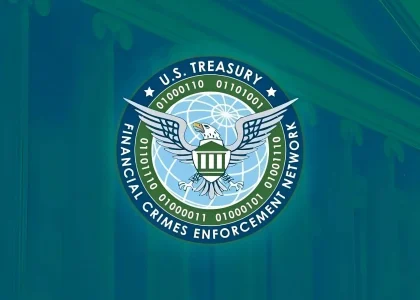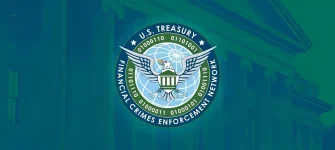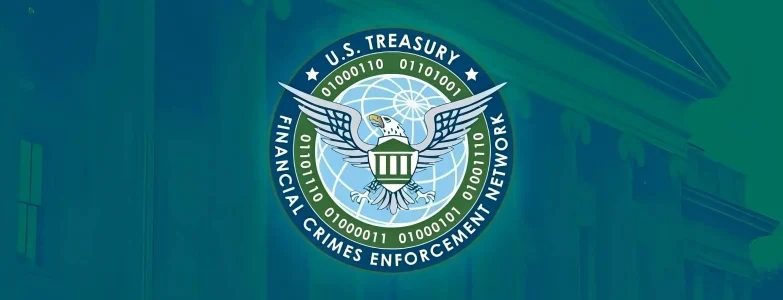The House passed a $484 billion spending package Thursday as the unemployment crisis deepened. According to the Labor Department, 4.4. million Americans sought unemployment benefits last week because of the COVID-19 pandemic. More than 26 million jobless claims have been filed since the novel coronavirus breakout hit the U.S. last month.
The legislation passed yesterday, by a 388-5-1 bipartisan vote, seeks to restart the small-business loan program (that ran out of money last week and stopped processing loans by demand), and allocate more money for hospitals and virus testing to battle the coronavirus pandemic. The new measure includes $310 billion to replenish the Paycheck Protection Program, $60 billion for a separate small-business emergency loan and grant program, $75 billion for hospitals and health-care providers, and $25 billion for a new coronavirus testing program.
President Trump says he’ll sign.
Multiple media outlets reported that lawmakers from both parties are talking about pursuing more large spending bills to try to contain the pandemic’s economic fallout, but the measure passed on Thursday could be the last one for at least several weeks as divisions emerge between the parties about how much more to do. “Congress is not scheduled to return to Washington until May 4 at the earliest.”
In addition to this historic bill, the IRS granted broad coronavirus-related tax relief to help people facing the challenges of COVID-19 issues.
Please note that the new relief, issued in Notice 2020-23, applies to all taxpayers that have a filing or payment deadline falling on or after April 1, 2020, and before July 15, 2020, including individuals, trusts, estates, corporations, and other noncorporate tax fillers, and that period will be disregarded by the IRS in calculating any interest, penalty, or addition to tax for failure to file the forms specified in the notice.
Important Highlights:
American citizens living abroad: Americans who live and work abroad can now wait until July 15, 2020, to file their 2019 federal income tax and pay any tax due.
Specified forms: Federal tax forms and payments covered by the relief include:
- Calendar year or fiscal year corporate income tax payments and return filings on Form 1120, U.S. Corporation Income Tax Return, and other forms in the 1120 series.
- Individual income tax payments and return filings on Form 1040, U.S., Individual Income Tax Return, and other forms in the 1040 series.
- Calendar year or fiscal year partnership return filings on Form 1065, U.S. Return of Partnership Income, and Form 1066, U.S. Real Estate Mortgage Investment Conduit (REMIC) Income Tax Return.
- Estate and trust income tax payments and return filings on Form 1041, U.S. Income Tax Return for Estates and Trusts, and other forms in the 1041 series.
- Estate and generation-skipping transfer tax payments and return filings on Form 706, United States Estate (and Generation-Skipping Transfer) Tax Return, and other forms in the 706 series.
- Form 8971, Information Regarding Beneficiaries Acquiring Property from a Decedent, and any supplemental Form 8971.
- Estate tax payments of principal or interested due as a result of an election made under Secs. 6166, 6161, or 6163.
- Exempt organization business income tax and other payments and return filings on Form 990-T, Exempt Organization Business Income Tax Return (and Proxy Tax Under Section 6033(e)); and
- Excise tax payments on investment income and return filings on Form 990-PF, Return of Private Foundation or Section 4947(a)(1) Trust Treated as Private Foundation, and excise tax payments and return filings on Form 4720, Return of Certain Excise TAxes under Chapters 41 and 42 of the Internal Revenue Code.
The IRS Initiative also includes:
- Existing Installment Agreements:
For taxpayers under an existing Installment Agreement, payments due between April 1 and July 15, 2020 are suspended. Taxpayers who are currently unable to comply with the terms of an Installment Payment Agreement, including a Direct Debit Installment Agreement, may suspend payments during this period if they prefer. Furthermore, the IRS will not default any Installment Agreements during this period. By law, interest will continue to accrue on any unpaid balances.
- New Installment Agreements:
The IRS reminds people unable to fully pay their federal taxes that they can resolve outstanding liabilities by entering into a monthly payment agreement with the IRS. See IRS.gov for further information.
- Offers in Compromise (OIC)
The IRS is taking several steps to assist taxpayers in various stages of the OIC process:
- Pending OIC applications:The IRS will allow taxpayers until July 15 to provide requested additional information to support a pending OIC. In addition, the IRS will not close any pending OIC request before July 15, 2020, without the taxpayer’s consent.
2. OIC Payments: Taxpayers have the option of suspending all payments on accepted OICs until July 15, 2020, although by law interest will continue to accrue on any unpaid balances.
3. Delinquent Return Filings: The IRS will not default an OIC for those taxpayers who are delinquent in filing their tax return for tax year 2018. However, taxpayers should file any delinquent 2018 return (and their 2019 return) on or before July 15, 2020.
4. New OIC Applications: The IRS reminds people facing a liability exceeding their net worth that the OIC process is designed to resolve outstanding tax liabilities by providing a “Fresh Start.” Further information is available at IRS.gov.
- Non-Filers
The IRS reminds people who have not filed their return for tax years before 2019 that they should file their delinquent returns. More than 1 million households that haven’t filed tax returns during the last three years are actually owed refunds; they still have time to claim these refunds. Many should consider contacting a tax professional to consider various available options since the time to receive such refunds is limited by statute. Once delinquent returns have been filed, taxpayers with a tax liability should consider taking the opportunity to resolve any outstanding liabilities by entering into an Installment Agreement or an Offer in Compromise with the IRS to obtain a “Fresh Start.” See IRS.gov for further information.
- Field Collection Activities
Liens and levies (including any seizures of a personal residence) initiated by field revenue officers will be suspended during this period. However, field revenue officers will continue to pursue high-income non-filers and perform other similar activities where warranted.
- Automated Liens and Levies
New automatic, systemic liens and levies will be suspended during this period.
- Passport Certifications to the State Department
IRS will suspend new certifications to the Department of State for taxpayers who are “seriously delinquent” during this period. These taxpayers are encouraged to submit a request for an Installment Agreement or, if applicable, an OIC during this period. Certification prevents taxpayers from receiving or renewing passports.
- Private Debt Collection
New delinquent accounts will not be forwarded by the IRS to private collection agencies to work during this period.
- Field, Office and Correspondence Audits
During this period, the IRS will generally not start new field, office and correspondence examinations. We will continue to work refund claims where possible, without in-person contact. However, the IRS may start new examinations where deemed necessary to protect the government’s interest in preserving the applicable statute of limitations.
- In-Person Meetings: In-person meetings regarding current field, office and correspondence examinations will be suspended. Even though IRS examiners will not hold in-person meetings, they will continue their examinations remotely, where possible. To facilitate the progress of open examinations, taxpayers are encouraged to respond to any requests for information they already have received – or may receive – on all examination activity during this period if they are able to do so.
2. Unique Situations: Particularly for some corporate and business taxpayers, the IRS understands that there may be instances where the taxpayers desire to begin an examination while people and records are available and respective staffs have the capacity. In those instances when it’s in the best interest of both parties and appropriate personnel are available, the IRS may initiate activities to move forward with an examination — understanding that COVID-19 developments could later reduce activities for an agreed period.
3. General Requests for Information: In addition to compliance activities and examinations, the IRS encourages taxpayers to respond to any other IRS correspondence requesting additional information during this time if possible.
- Earned Income Tax Credit and Wage Verification Reviews
Taxpayers have until July 15, 2020, to respond to the IRS to verify that they qualify for the Earned Income Tax Credit or to verify their income. These taxpayers are encouraged to exercise their best efforts to obtain and submit all requested information, and if unable to do so, please reach out to the IRS indicating the reason such information is not available. Until July 15, 2020, the IRS will not deny these credits for a failure to provide the requested information.
- Independent Office of Appeals
Appeals employees will continue to work their cases. Although Appeals is not currently holding in-person conferences with taxpayers, conferences may be held over the telephone or by videoconference. Taxpayers are encouraged to promptly respond to any outstanding requests for information for all cases in the Independent Office of Appeals.
- Statute of Limitations
The IRS will continue to take steps where necessary to protect all applicable statutes of limitations. In instances where statute expirations might be jeopardized during this period, taxpayers are encouraged to cooperate in extending such statutes. Otherwise, the IRS will issue Notices of Deficiency and pursue other similar actions to protect the interests of the government in preserving such statutes. Where a statutory period is not set to expire during 2020, the IRS is unlikely to pursue the foregoing actions until at least July 15, 2020.
Sources: IRS.gov. / Johns Hopkins Coronavirus Resource Center, Friday, April 24, 1 a.m. / IRS grants coronavirus-tax relief. By Alistair M. Nevious, J.D. for Journal of Accountancy. / House passes $484 billion bill. By Erica Werner for The Washington Post. / Coronavirus.gov
____
At Guillen Pujol CPAs, we are ready to assist in the determination of the maximum amount that you can apply for, the completion of all these forms and preparing all necessary additional documentation, and even act as your agents to follow up through all the process with the SBA lender for this loan application.
#StayHome: The U.S. has become the worldwide epicenter of the coronavirus epidemic. As of Friday, April 24, 01:00 a.m., the COVID-19 fatalities are approaching 50,000 and more than 869,172 cases have been reported. (Via the Center for Systems Science and Engineering at Johns Hopkins University Hospital).
En caso de necesitar mayor información, puede contactarnos vía email o teléfono. #QuédateEnCasa














